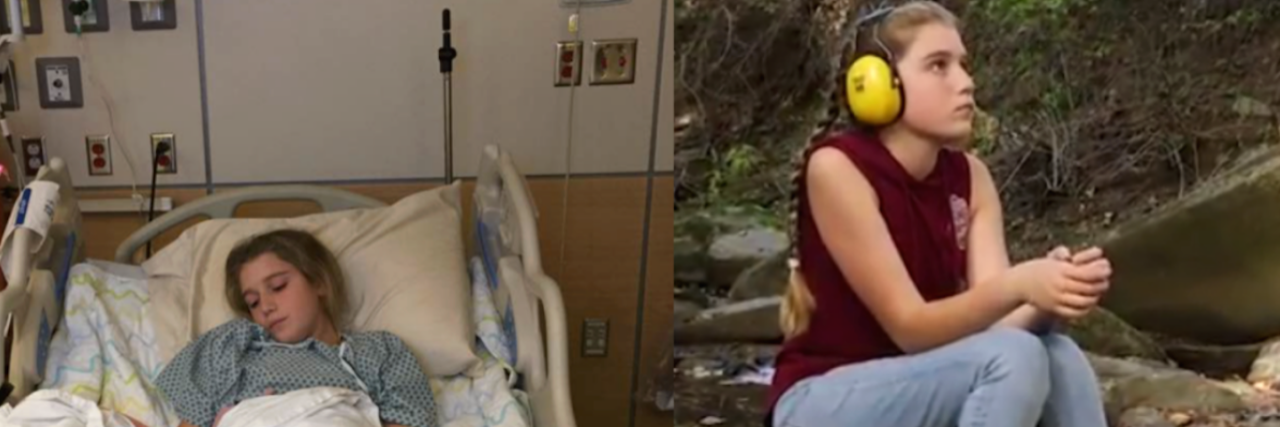Last year, at age 13, Cindy Redmond was blasted with an air horn by her friend’s stepfather, who wanted her to get off her phone. She suffered a severe acoustic injury, causing hyperacusis, or noise-induced pain.
It’s the same injury I have, only mine was from a more common cause: loud music and too many concerts. Now, all but the mildest noises are amplified and painful.
There’s an endless list of ordinary sounds that cause pain for people like Cindy and me. They include barking dogs, clinking ice and rustling papers.
It’s accompanied by its evil twin, tinnitus, or ringing in the ears. It’s a rare and cruel disability that’s impossible to comprehend.
Cindy can no longer attend regular school, which is too loud for her. I can no longer work in an office, and must work on the computer from home.
Yes, earplugs help, but they by no means solve the problem. With earplugs, you can’t hear well — and your ears still hurt. They just hurt less than they would without them. Both Cindy and I have burning ear pain all the time, too.
Cindy is now the #Cure4Cindy fundraising poster child for the nonprofit Hyperacusis Research.
Her story is so unusual that it has gained national attention. It was in People, the Daily Mail, the Delaware News Journal and, more recently, on the Today Show. Her mother wrote an opinion piece about air-horn pranks for The Guardian US.
Naturally, Cindy’s story is making a splash in the hyperacusis community. Many people are supportive. But some — including those who also have had a noise injury — blame Cindy for not getting better.
They say she is not trying sufficiently hard. She is not seeing the right doctors or sticking with treatment long enough. She doesn’t have a positive attitude.
I am so fed up with the #Blame4Cindy people. For years, they have also been blaming me for not getting better.
I tried as hard as I could. I saw the right doctors — in fact, some were the same specialists Cindy saw. I stuck with treatment for years.
I had a positive attitude, if “positive attitude” means a fervent wish to get better and resume normal life. None of it helped.
There seem to be several types of hyperacusis, with differences in severity. Or maybe they are different disorders altogether. Too much about hyperacusis is unknown.
One type of hyperacusis seems relatively mild and gets better on its own. Another type slowly improves until one noise wipes out every shred of progress. And still another type worsens for no obvious reason.
An easy-to-understand analogy is cancer. Despite the same diagnosis and treatment, one patient will recover and another will die.
It alarms me that the people who should understand the most — people with hyperacusis who are lucky enough to improve — are the ones who understand the least.
So, while we endure as best we can, we don’t need blame. We need research.

